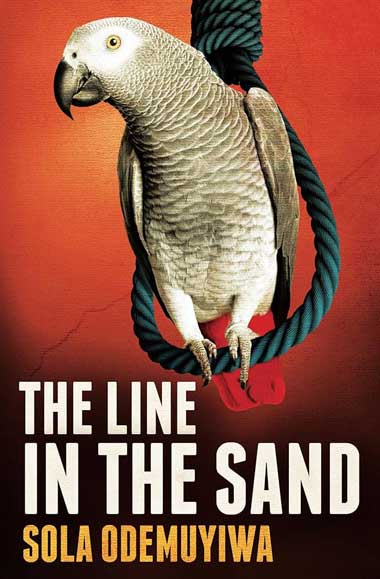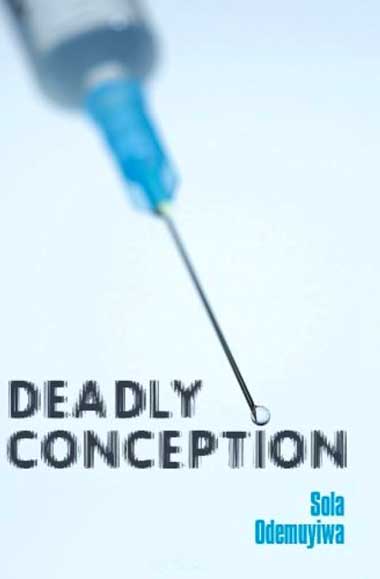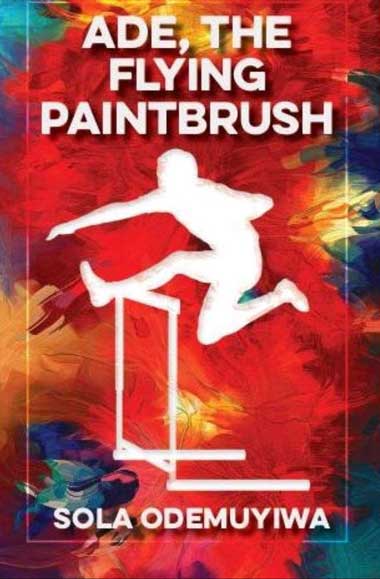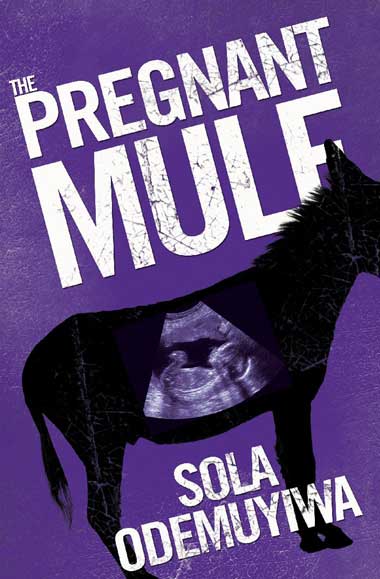My dear Wale,
It’s me, Yaro. You dropped me off on the evening of Saturday the 12 th of January after a
wonderful day. I’d arrived by air that morning and we went to Ikoyi Club for lunch. Remember?
You took my side in a dispute with Ori over his failure to use his seatbelt in the back of the car.
Ori got his own back by shopping you to me over sneaked cigarettes. You ping-ponged teases
like little boys, though I fumed at you about the cigs because I love you and did not want you to
die. We talked about the old days, about our families. You asked after my boy James, the 2 year
old who whacked the ball hard in our living room when you visited us in Newcastle. He’s thirty-
two now and still plays football. You showed us the design of the cover of your book, your
silhouette behind the soft bars. I thought it great but wanted the scales of justice on the front
cover removed. Ori said he thought it would make the book look like a novel. We left it to you.
Then off went Ori to play Ayo and you drove me round, first to show me the excellent facilities
at First Cardiology, where my phone dropped out of my pocket and we had to retrace our steps
to find it, in that same grey SUV with the black seats in which you travelled to Abuja. That’s
what I cannot get my head round. I remember thinking you looked so well, ensconced in the
“owner’s corner,” while I bathed in your mellifluous tones. Thank heavens we found the phone
you said, you couldn’t cope with one of Yaro’s moods, lakuskus, you used to call it in medical
school. I’m better now I said. Grown up at last. And you laughed. Few of us would enjoy
meeting our younger selves, except through the long lens of black humour held by the hands of
close friends.
We went home to Fola, had a quiet time, we talked about the tragic loss of my cousin
Kabi, about the state of the nation and of the justice system and how going to court is almost a
rite of passage. I was so proud of you, nice home, children settled, time for yourself and others.
Perfect. None of this did we take for granted when we were young men. See you soon I said
and waved you off. Later, Itunnu insisted that I had supper but I was full already, with what the
Scandinavians call hygge, a cosy contentment from spending a pleasant day with you. Greedy
and not to be rude, I had the delicious spaghetti anyway.
On Tuesday, we spoke over the phone on my way back to the airport. You swore, angry
for me, because the judge adjourned my case. Not great, but I didn’t mind that much because
the adjournment gave me a good excuse to repeat my visit to Lagos and yours again.
Back here in the freezing winter cold, central heating on all day, Mau and I were feeling
fragile because we’d had some bad news that week – her sister’s diagnosis with cancer. As you
know, I am trying to write a novel about a prison warder, but, unable to concentrate that
afternoon, I carried out a relatively less demanding skim over some of the earlier chapters.
Later, that evening I was trying to follow the soap opera on TV when at 21:12hrs my phone rang
again. It was from Ori, your local hedonist. He’d tried to reach me only a few minutes earlier
and I sensed that it must be important so I went to stand at the bottom of the staircase in the
quiet to take the call. ‘Bad, bad news,’ he said, his tone, unusually serious, portentous. My mind
raced through the possibilities. Instinct said it was not his mum, whom I had also had the
pleasure of meeting in his flat in January. What else? Divorce, accident? ‘Wale. Wale is dead.
Kidnappers.’ A thunderclap went off in my chest, heart stopped, I slumped forward on the
staircase, trembling, winded, stunned. ‘Are you still there?’ he said after a few seconds.
‘Yes, I am here.’ I stammered. What could I say? After that wonderful Saturday
afternoon, this? I told Mau. You met her. Already struggling herself, she burst into tears. I
flopped on my knees, head in hands on the sofa, for a few minutes, called your son, Olaolu, Fola
too distressed to take the call. I crept up to bed, shivering in my wife’s arms like a man with
Malaria, but with tears perhaps too stricken themselves to emerge, or behind the bars of shock.
Now I think, to barbs of anger, guilt, frustration, that while I sat typing away at the keyboard
you, my dear friend, were speeding towards the end on a highway in Kogi State. I googled the
route. Enough said.
Saturday, the next morning, squirming inside, unable to sit still, I went to house-hunt
with James. You might have met his younger brother, Adam when he came to Lagos with me
about 5 years ago and you visited us in the hotel in Ikeja. I told him one afternoon on his way
back from work that everyone needs a friend like you, the one you can tell everything and will
tell you the truth.
But I digress. Of course, I was of little use to house-hunting James but I needed the
company. When I told my younger sister, Dupe, later that evening – I had to choose the least
bad time – she burst into tears. Wale, do you remember her when I used to take you to
Tokunbo Street to visit my mother? ‘You were so happy, so happy,’ she said between sobs. My
mum loved you too as you well know.
Wale, let me rewind. I saw you before you saw me. In 1972 I went to Onikan Stadium to
watch Gregs play Baptist Academy in the Principals’ Cup, semifinal I believe. Your jersey seemed
several sizes too big but you could play. Gregs lost 1-2 but you scored their only goal – a
somewhat mistimed shot that hit the turf before it bounced into the net. Little did I know that
day that you would come to mean so much to me.
When we became friends in our first year in Medical School at Idi-Araba you said you
used to wonder what was wrong with that sullen boy with red eyes, shuffling around Akoka.
Must be high on something. Didn’t know at the time but it was probably just adolescent angst
and hay-fever. We hit it off. You, perhaps as much as anyone can, came to know me perhaps
even better than I knew myself.
In the first year, remember how you used to fret over the state of your stomach?
Halfway through Physiology you’d whinge that you were hungry when you’d only just had
breakfast? And we would laugh at you and ask if you had a tapeworm in there. You weighed 9
and a half stones on the scales every Monday morning. You preferred that wordy American
textbook when I preferred the pithy Samson Wright? You wanted to learn first, then pass the
exam, I just wanted to pass. Remember playing football on the shale in the abandoned water
treatment plant at the back of our pristine hostel? Halfway through the game I’d look around
and you’d gone. Wry smiles from all the others because we knew why. Your scheduled visitor.
You used to come with me on my “rounds” to the wicked devils who mangled by heart-
strings. Remember the police training college not far from our house? Remember how you used
to help me lick my wounds when I returned tail between my legs because the wicked girls said
they were washing their hair or coming down with some fever, or had to go out with a friend,
or waved bye-bye to me from the back of some executive’s car? How many times did vaulting
ambition exceed means and you asked someone out but didn’t know how to get her there.
Then you would say with a shrug or two of the shoulder, Ile ola a saa mo, something to that
effect; meaning by the morrow we will know what happened – either nothing or a great date. It
was not the end of the world, though it felt like it at the time. We laughed about those days
again that Saturday the 12 th of January, the last day I saw you smile at me.
Yet under your cheerful demeanor lay a deep thinker with a passion for the truth that
would serve your patients well, but would later get up the noses of some superiors. It was in
the spirit of public service that you convinced me to run for President of the association. Me,
shy and retiring and moody Fela addict? No way, I said, cowering in my bed in the room right at
the end of the block, closest to the main gates that Saturday morning. You wouldn’t have it.
You saw more in me than I saw in my mirror, more than frivolity in the spoof campaign speech I
made on the coach on our way to Anatomy dissection. You helped run my campaign. No word
processors in those days. We produced campaign leaflets by what they call cyclostyling. One
naira it cost me to print, which was a lot of money. I had a photo in the female hostel. Cringe-
worthy, embarrassing, but had to be done. Though it took a toll on my studies, that was the
best thing I did in Medical School, thanks to you. Decades later, two or three years ago, you
called to tell me that Chudi, my opponent, had been murdered. Don’t we seem to have lost
more classmates to violence than to natural causes? Everything, health, security, law and order
seems like a lottery in which the stakes are high but the odds against disaster low, yet if the first
duty of any government is not to aim them at, but put its arms round, its citizens, our
governments, of a country you would not forsake for gold, have let you down. This you did not
deserve.
Each time I come to the full-stop after deserve I have to stop myself because I cannot
believe that I am writing to you like this.
At Idi-Araba you looked out for me, lifted me out of the dumps, got me out of bed
sometimes to go to the wards, if I was being really silly you would tiptoe past my room and
confess the next morning that you wanted a night off as a sole raider. We’d laugh. Is a laugh at
yourself not a route to wisdom?
As house officers living on the Marina, after your evening perambulations, we could
hear you yank up the handbrake of your white Honda Accord high up in my flat on the 5 th floor.
Was it LA 3860AG? What were you trying to do, rip out the handbrake and use your feet on the
ground like the Flintstones? Do you recall the risks you used to take when, with the petrol dial
touching zero, you’d still try to go the extra mile? Once you came a cropper miles from home
and had to walk. After that, you carried a can in the boot, just in case. Why you simply didn’t
just stop and buy the petrol before it ran out I never understood. But was this risk taking, what
made you truly what you were?
Youth Service based you in Lagos, I in Ibadan. We had nothing like mobile phones in
those days but I just knew I could get in my car at any time of the day or night from Ibadan or
Oyo, anywhere and camp in your flat. I had a key. Remember how we’d inadvertently chat up
the same lady, only to find out what happened when we got home? Then you’d pretend to
have given up. I wasn’t fooled, just pretended that I was. We’d laugh over it after the fact.
Grandmothers now. We all met at your flat in 1004 on Fridays, SOG, Omoti, BBY, Boydilo,
Dendioro, everybody, until they paired off seriously one by one. Your openness and generosity
a wonder to behold, reminding me of a lawyer friend of my dad’s when we lived in the north in
the 60s.
Remember that movie Operation Daybreak we went to see on the eve of the Paediatrics
exam? Every time it is on TV I think of you. Remember that Marvin Gaye Here my Dear Album,
now CD? Over and over played the cassette recording in your car. The words made us think
about relationships. Perhaps we were going through our cynical phase then, round about 1980.
Thank heavens we got over it. Poor Marvin, with all his talent, probably never did.
After Youth Service, we had to grow up and choose our paths. You’ve probably
forgotten but I thought of hiding away in some laboratory-based specialty in Luth. You saw
through me in a flash. No, you said, you are not a microscope man. I didn’t know what I wanted
but you knew what I couldn’t want: and as usual you were right.
You joined the Prisons Service. One sultry morning in 1980 you took me to a session in
Kirikiri. I found the experience so soul-destroying that I said that I would not come back. I left
the country in 1981. I missed you, but when we met again in Newcastle, London, Lagos or Abuja
it was as if we’d never been apart. Once when I visited you in Abuja you agreed to keep an eye
out for my mother, as backup. That was a great relief. Wale, thank you.
Perhaps the visit to Kirikiri stuck with me more than I knew because almost forty years
later I started to write a novel about a prison warder. I asked you as a former head of the
Health and Welfare Services of Nigeria’s Prisons, for help with research. Imagine my delight
when you said you were writing a book about your experiences as a medical officer in the
Prison Service and that when you finished you would send me a draft.
What a shocking account it was. Your passion for your work leapt off every page of your
forensic and scholarly description of and explanation for the state of our prisons. I was
heartbroken to read of your despair when, after your transfer to Abuja, a capricious abuse of
process expelled Fola and the young children from the home in Lagos to which they were
entitled. That you could have lost your job for sending a convict for investigation of a peptic
ulcer suffocated me for a few seconds in bewilderment, until I realized that this is Nigeria you
were writing about, not South Korea. Aren’t we a special people? Was it you who told me a
joke about that? Talking of special, what was it with those so-called VIP detainees? With them, I
could almost hear you walking on eggshells on a narrow ledge between courtesy and
correctness. Make a mistake you joined them.
Yet you overcame self-serving and cynical indifference, outright hostility to reform, low
chicanery, the manipulation of the so-called chain of command, and challenged the New Prison
project. You saved thousands of lives through the reforms you initiated or implemented, the
Prison Health Policy, system of on-site hospitals for inmates and staff and the secure training
programme for specialist health personnel. You helped many an old classmate with advice.
After retirement, you continued to fight for justice, for the pensions of other officers and to
reduce decongestion in the prisons. All this at great personal cost and risk, financial,
professional, psychological. Years after you retired one of your former bosses admitted that
many of the officers did not want your improvements. Why, he did not say. Perhaps they too
will write books one day to explain.
Wale, I am proud of you. Few could match your achievements. I talk of you here too. In
your book, Alone in My Cell you sounded a note of warning that if reforms continue to be
“systematically and recklessly vandalized,” then we cannot be safe or consider ourselves just
and fair if inmates are released, bitter and angry without skills, family, hope, or a stake in
society. In short, gunmen do not grow on trees or wombs, but from, and on, a rotting society.
It is six days now since they murdered you. Can this be true? I kept thinking, this time
last week Wale was still alive and floated along, trying to write, or play the piano or go for
walks, but my arms went heavy and my head dropped, my soul sagged and tears welled up as
grief gnawed away for the price it wants for the love we shared. When your photo came up on
Whatsapp it hit me like a monster bulldozer. Bang bang. I could not crumble and went to work.
Pangs of irritation arced up my spine at one man who overstayed his welcome. Screaming
inside me. Go, go, go or I will stand up and boot you out. Not his fault, I often like a chat, poor
thing did not see that I just wanted to dictate his letter and get back to my house.
My dear Wale, when you asked me to write a foreword for your excellent book how was
I to know that it was your epitaph?



